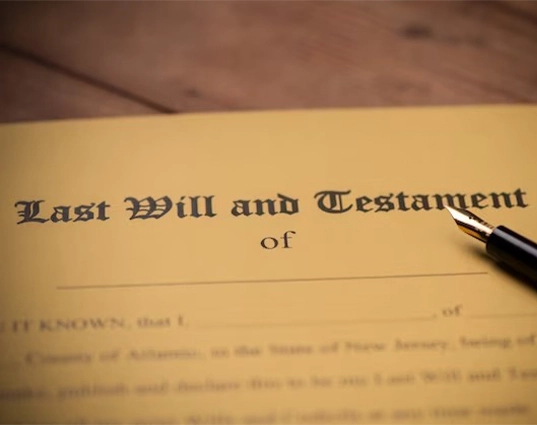Estofa Law offers its customers peace of mind by ensuring that property transfers between generations happen in a way that is both tax-efficient and in line with their client’s preferences. Our Wills And Estates Lawyer Burlington are intended to assist you in making plans, whether it is for the expansion of your company, the acquisition of your ideal home, the safeguarding of your concepts, or the carrying out of your final desires.
An individual’s desires for the handling of their estate and the upbringing of their children after death are expressed in a will, which is a legal document. It acts as a legal declaration of one’s preferences regarding the administration of their estate, appointing guardians to look after minor children and executors to supervise the estate.

By creating a will, you can express your desires for the distribution of your assets and money after death. Typical contents of wills are as follows:
When the testator, the person who drafted the will, passes away, the will becomes effective. The testator’s assets will not be distributed by the will’s legal authority until that point. The probate process is required to validate the will after the testator passes away. During this process, the court officially acknowledges the validity of the will and gives the designated executor permission to handle and split the estate in line with the conditions of the will.
Wills may have restrictions and may not cover every facet of estate planning. Property held in joint ownership or others designated by beneficiary designations such as life insurance policies or retirement accounts do not come under their management or control; instead, the stated beneficiaries receive the assets immediately. Additionally, some legal requirements, such as paying taxes and debts, must be satisfied before assets can be dispersed; wills cannot overrule these requirements. Furthermore, a will cannot control financial or medical decisions made while the testator still lives because it becomes operative only after the testator dies.
A will needs to fulfill a few essential conditions to be deemed legally valid. The person usually seeks help from Wills And Estates Lawyer Haldimand County for making the will, that must be of legal age and have testamentary capacity, which denotes that they know the significance of their choices and the nature of the instrument. The testator must write and sign the will, and in the majority of jurisdictions, at least two people who are not the will’s beneficiaries must witness the signature.
Our Wills And Estates Lawyer Oakville have experience in dealing with all types of estate planning and administration, from simple wills to complex blended family situations and transfers of business interests.
Estofa Law is a real estate law firm dedicated to serving clients in Burlington, Oakville, Milton, Hamilton, and Toronto.
The material found on our website is intended purely for informational purposes. It is not to be considered as legal advice or a replacement for seeking guidance from a qualified professional. A solicitor-client relationship is not established until formal retention.
Copyright © 2025 | Estofa Law Professional Corporation | All Rights Reserved